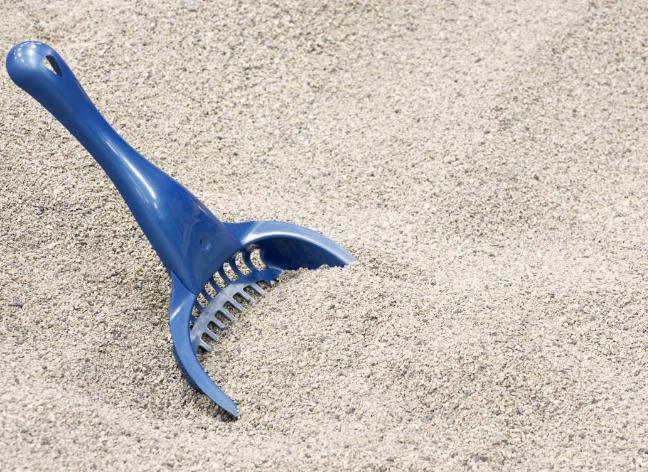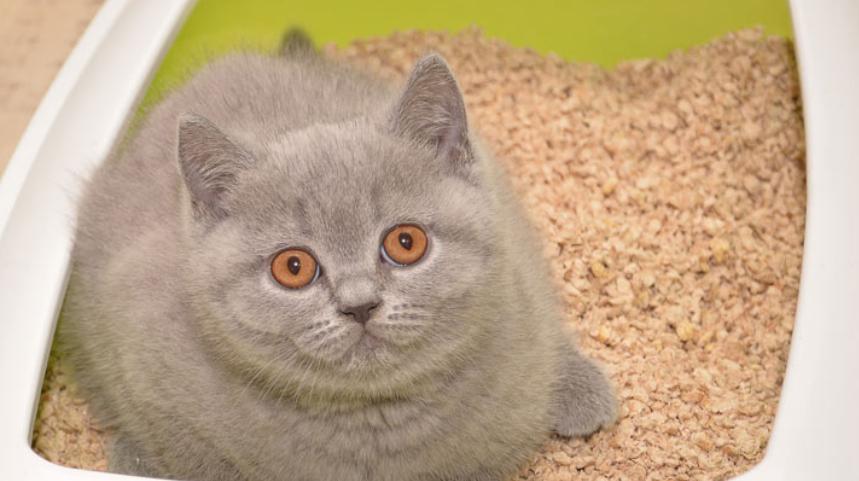Cats are known for their curious and sometimes puzzling behaviors, but one that can be particularly alarming is when they start eating cat litter. This unusual habit can leave pet owners confused and concerned about their feline friends. Understanding why is my cat eating cat litter is crucial in determining whether it’s a passing curiosity or a sign of a more serious issue. Cats may eat litter for various reasons, ranging from curiosity in kittens to health-related factors such as nutritional deficiencies or stress. Identifying the cause is key to finding an appropriate solution and ensuring the well-being of your cat. In this guide, we will explore the possible causes of litter eating, the associated risks, and actionable steps to prevent this behavior. By addressing the issue promptly, you can safeguard your cat’s health and help them break this potentially harmful habit.

What Causes Cats to Eat Cat Litter?
Litter eating may be a perplexing behavior, but it is not uncommon. Several factors can cause a cat to eat litter, and understanding these reasons can help you address the issue effectively.
Pica and Behavioral Issues
One of the main reasons cats eat litter is due to a condition called pica, where animals consume non-food items. This could stem from boredom, stress, or simply a behavioral issue that prompts cats to explore their environment inappropriately. Pica can develop at any age and may require behavioral interventions.
Curiosity in Kittens
Kittens are naturally curious and often explore their surroundings using their mouths. In their early stages, they might taste cat litter out of pure curiosity, unaware of the potential risks. This behavior is more common in younger cats, who are still learning about their environment and may mistake litter for something edible. While this habit typically fades as kittens grow older and begin to distinguish food from non-food items, it’s essential to monitor them closely during this phase to prevent harmful ingestion. Ensuring they have safe toys and proper supervision can help redirect their curiosity and reduce the likelihood of them eating litter.
Nutritional Deficiencies
A cat lacking essential minerals like iron or calcium may try to compensate by eating non-food items like litter. Deficiencies can lead to health issues, so it’s important to address them promptly. Feeding your cat a balanced, nutrient-rich diet helps prevent litter-eating behavior. In some cases, even with a proper diet, supplements may be needed if your cat has specific health issues or is recovering from illness. Always consult your vet before giving supplements.
Stress and Anxiety
Stress and anxiety can also cause abnormal eating habits in cats. Changes in their environment, introduction of new pets, or moving to a new home can make a cat feel unsettled. This might lead them to chew or eat litter as a coping mechanism for their stress or discomfort.
Is Eating Cat Litter Dangerous for Cats?
Eating cat litter can be dangerous for cats, and understanding the associated risks is important for their health. Clumping litter, while convenient for cleaning, poses a serious threat if ingested, as its clumping agents can form solid masses in the stomach or intestines, leading to potentially life-threatening blockages that may require medical intervention. This risk is particularly high for kittens, who are more likely to explore litter with their mouths. Additionally, some litters contain harmful chemicals or additives, such as those in silica-based or scented litters, which can cause digestive upset or more severe health complications if ingested. Choosing a safe, non-toxic litter and closely monitoring your cat’s behavior can help minimize these risks.
How to Prevent Your Cat from Eating Litter: Step-by-Step Guide
Preventing your cat from eating litter requires addressing both the behavior and any underlying causes. By following these steps, you can help your cat stop this habit and improve their health.
Step 1: Identify the Cause
The first step in preventing your cat from eating litter is to identify the underlying cause. Why is my cat eating litter? This behavior can be caused by a variety of factors, such as stress, boredom, or even medical issues like nutritional deficiencies, anemia, or pica (a condition where animals eat non-food items). If you suspect a health-related issue, consulting a vet is crucial. Understanding the root of the behavior will help you implement the most effective solution, whether it’s adjusting their diet or managing their environment.
Step 2: Switch to a Safer Litter
Consider switching to a safer, non-toxic, or non-clumping litter if your cat tends to eat litter. Clumping litter can pose serious health risks when ingested, as it may cause blockages in their digestive system. Plant-based or paper litters, like Yesterday’s News or Feline Pine, can be safer alternatives, as they are made from natural, digestible materials that reduce the risk of ingestion-related health issues. These types of litter may also be less appealing for your cat to eat.
Step 3: Monitor Your Cat’s Behavior
Closely monitor your cat’s behavior around the litter box. Is your cat nibbling at the litter or just sniffing and exploring? It’s important to determine whether this is a persistent problem or a one-time incident. If your cat continues to eat litter, you may need to increase supervision and take action more quickly. Observing when and how often they engage in this behavior can help you identify any patterns or triggers, such as boredom or anxiety, that may be contributing to the habit.
Step 4: Provide Nutritional Supplements
If your vet suspects a nutritional deficiency, it’s important to address this issue immediately. Deficiencies in minerals like iron, calcium, or other essential nutrients may lead your cat to seek out non-food items like litter. Supplements prescribed by your vet, such as iron or calcium tablets, can help rectify these deficiencies and reduce your cat’s compulsion to eat litter. Ensuring your cat has a well-rounded diet rich in all essential nutrients can prevent future issues.
Step 5: Consult a Veterinarian
If your cat is persistently eating litter and the behavior doesn’t stop after you’ve tried preventive measures, it’s time to consult a veterinarian. Persistent litter eating could be a sign of a more serious issue, such as pica or an underlying health condition that needs to be addressed. Watch for symptoms like vomiting, lethargy, or changes in bowel movements. These could indicate that the ingested litter is causing a blockage or digestive upset. If your cat shows any of these signs, immediate veterinary care is essential to avoid further complications.
Step 6: Enrich Your Cat’s Environment
Cats need mental and physical stimulation to stay healthy and content. If your cat is eating litter out of boredom or frustration, offering more toys, interactive activities, and opportunities for climbing or exploring can provide a healthy outlet for their energy. Puzzle feeders, treat-dispensing toys, or even adding a new scratching post or cat tree can keep them mentally stimulated and reduce their focus on the litter box. Regular playtime can also relieve stress and curb undesirable behaviors like litter eating.
Step 7: Provide a Balanced Diet
Ensuring your cat is receiving a balanced, nutritious diet can greatly reduce the likelihood of them eating litter. Cats may turn to litter if they are not getting the necessary vitamins and minerals from their regular food. Consult with your vet about the best diet for your cat’s specific needs, whether it’s adding more high-quality proteins, vitamins, or switching to a more balanced commercial food. Ensuring your cat is well-nourished can help eliminate their need to seek nutrients from inappropriate sources.

Conclusion
Understanding why is my cat eating cat litter is crucial to preventing potentially harmful behaviors. Whether it’s caused by curiosity, nutritional deficiencies, or stress, identifying the root of the behavior will help you address it effectively. With the right preventive steps—such as switching to safer litter, providing a balanced diet, and enriching your cat’s environment—you can help protect your cat from the dangers of litter ingestion. Always consult a veterinarian if the behavior persists or if you notice any signs of illness related to litter eating, ensuring your cat stays healthy and happy.
FAQs
How can I discourage my cat from eating litter?
To discourage this behavior, first identify the underlying cause. Switch to a non-toxic or non-clumping litter, monitor your cat closely, and consult your vet for dietary adjustments or supplements if needed. Enriching their environment with toys and activities can also help.
Could eating litter indicate a serious health issue?
Yes, litter eating could signal an underlying health issue such as pica, nutritional deficiencies, or stress. If the behavior persists, it’s important to consult a veterinarian to rule out any serious conditions.
Is it normal for cats to eat litter occasionally?
Occasional litter tasting may be normal for kittens or curious cats, but persistent litter eating is not typical. If your cat continues this behavior, it’s important to investigate potential causes and take steps to stop it.
